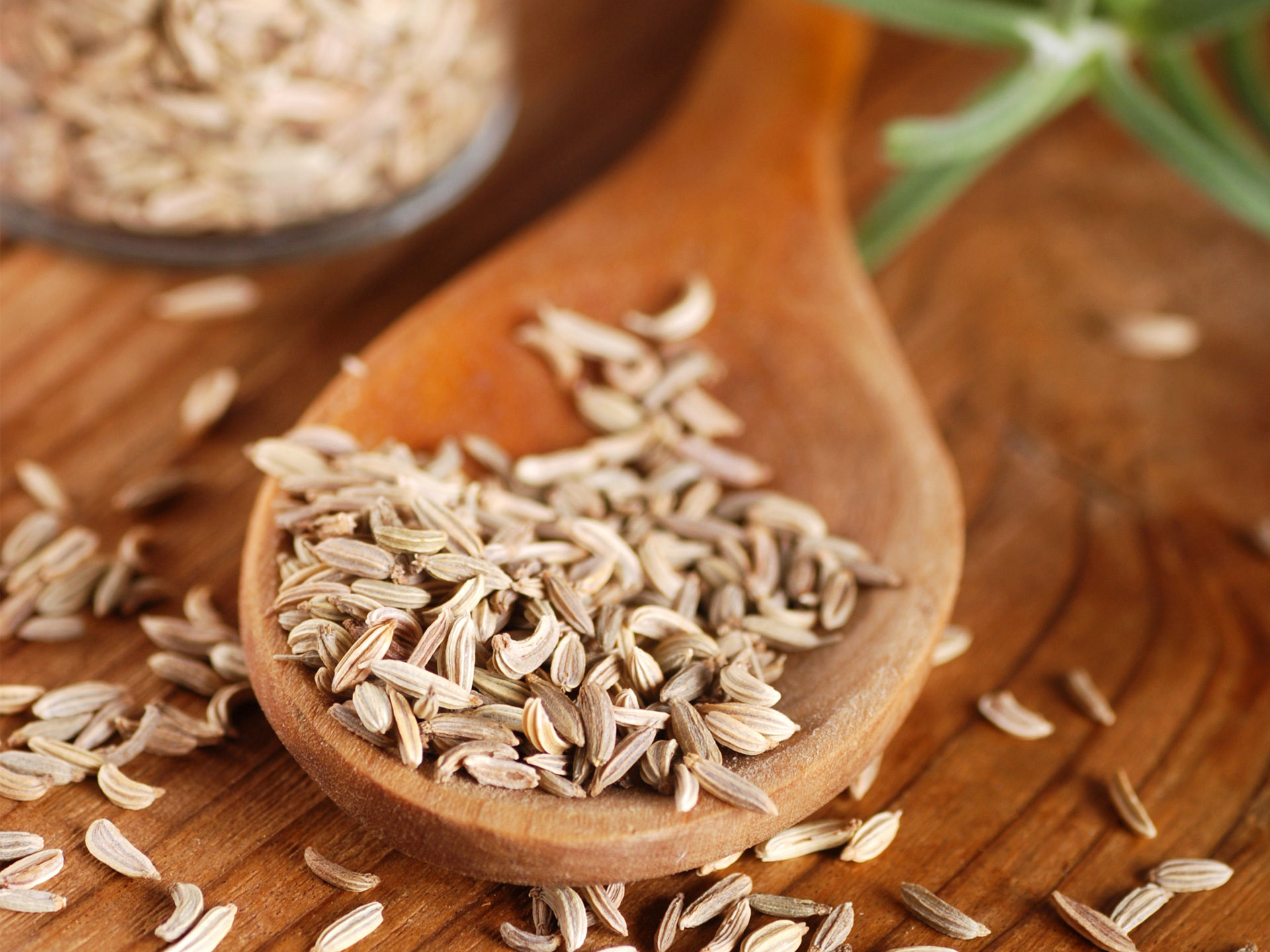
Fennel, or Foeniculum vulgare (in Latin), often used in all Mediterranean areas is a long perennial plant with dill like looking leaves and sturdy stems which can grow up to 2m height. Parts used are seeds, roots, and leaves.
Fennel seeds are an excellent remedy when it comes to treating heartburn as a result of acid indigestion. A lot of people confuse these two terms so let us first quickly define the difference between heartburn and indigestion.
Heartburn is that burning feeling in your chest (center), caused by acid coming from your stomach into your swallowing tube (reflux esophagitis). Heartburn is a symptom of indigestion.
Indigestion is an unpleasant feeling of discomfort in the upper abdomen or your chest. Acid indigestion can be felt in the pit of your stomach, usually caused by acid irritating the stomach lining. Many people also report a feeling of being bloated or full.
Why Is Fennel Your Best Friend During The Tasty Holidays?
Common causes of indigestion are overeating, eating fatty or spicy foods. Usually, all these symptoms occur during the good holiday seasons when there is an abundance of food in front us, and we somehow forget what we are supposed to eat and what foods we are meant to avoid.
A solution for indigestion and heartburn is to strengthen your stomach. This is when FENNEL SEEDS STEP IN!
As already mentioned, heartburn and acid indigestion problems appear when eating specific foods, drinking alcohol, eating too much too fast, drinking too much caffeine, or when we have a little bit of too much of everything, causing symptoms such as heartburn, a burning pain in the chest, burping, and loss of appetite.
Rich in magnesium, vitamin C and beta-carotene, fennel seeds not only stimulate digestion but according to Dr Oz, herbalists are using fennel seeds in different herbal remedies such as: relieving intestinal spasms or cramps, reducing or expelling gas, to STRENGTHEN STOMACH and to soothe the pain. When taken as a tea, fennel can relax your intestinal system. When chewed, fennel seeds can help you get rid of acid indigestion, which is a feeling you experience in your stomach. And when it comes to your heartburn symptoms, they will vanish in not more than ten minutes.
This is why fennel seeds are the best friends to have around during holiday seasons: to help you get rid of the discomfort of occasional heartburn caused by acid reflux.
You can chew fennel seeds either roasted after meals or eat them as they are.
Make sure you have fennel seeds all the time with you especially when in front of a delicious table filled with tasty “forbidden” foods, which is soo hard to resist.
Chew fennel seeds long enough, so all the beneficial compounds dissolve already in your mouth.
Fennel seeds are great to have when traveling. Always carry a small bag of fennel seeds with you especially if you have stomach problems (cramps, bloating, flatulence or heartburn). It will make your traveling much more enjoyable and pain-free.
Fennel seeds also produce aromatic essential oils. Fennel contains volatile oil, flavonoids, sterols and coumarins. It has been reported that the essential oil from the seed has antibacterial, antifungal, and antioxidant effects.
Fennel also has phyto-oestrogens which increase the flow of milk in nursing mothers. One cup of fennel seed tea can be taken between meals a few times a day. Take 2-5 g of fennel seeds crushed in 150 ml boiled water for 10 minutes. Whereas in many countries fennel is grown religiously in gardens and used as a delicious sweetish aromatic tea, in some countries fennel is considered to be just a common weed. In Italy and France, fennel is a favorite herb used in salads, soups, grilled, roasted or for flavoring liquors.
Fennel Benefits
In addition to being used in the food and as a refreshing tea, fennel is also used to ease different conditions from using it as an eye-water and to increase milk flow in nursing mothers, and especially for treating upset stomach and indigestion. Other benefits of using fennel:
- Appetite depressant
- Treat migraine headaches
- Relieves colic and flatulence
- Has calming effects on bronchitis and coughs
- Reduces bloating and abdominal discomfort
- As an estrogenic herb fennel promotes milk production
- Improves the complexion (cleanses the blood)
- Externally, the EO (essential oil) eases rheumatic pains.
- Used as a tea for eyewash to treat conjunctivitis and tired eyes.
Fennel Dangers
Fennel is a safe and efficient herb, and there are no known side effects of using fennel as a herbal tea. However, pregnant or lactating women should avoid using fennel in oil preparation. It has been reported that in pregnant women, the oil can cause miscarriage.
Fennel Tea
While some claim that fennel is an excellent food suppressant, which is excellent especially if you are a serious “watch dog” over your diet, the best part is that it seems like this aromatic fennel herb does help greatly when it comes to calming and treating indigestion, bloating, or colic.
Therefore, a teacup or two (three would not do any harm) a day of this delicious ancient and natural digestion remedy after, and or before a meal, might be a great and pleasant treat, soothing for the stomach. You may shed those unsightly extra pounds while enjoying warm fennel tea, which is worth trying at least for its delicious and refreshing taste.


